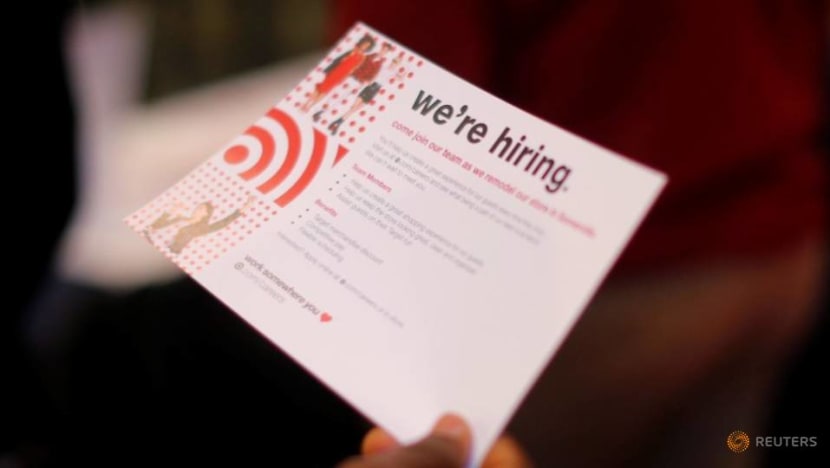commentary Commentary
Commentary: Sometimes, a promotion isn’t all that great
Thinking of taking that promotion? Pursue passion, not money, says human resource consultant Adrian Tan.

(Photo: Unsplash/Luke Ow)
SINGAPORE: As a headhunter, I got a call out of the blue one day from a dream candidate.
Lisa* told me she was looking for a more junior role compared to her current job. It’s a rare call - the first request I’d received since becoming a headhunter in 2012 from someone looking for a “demotion”.
Six months ago, Lisa took up a promotion and became a Regional Human Resources Director.
But she spent so much time outside of the country, it was starting to deprive her of precious family moments with her young kids.
Over the phone, she shared that she wouldn’t mind a pay cut as long as her new job didn’t involve so many business trips, especially long-haul travels.

READ: No time to be a family – except on vacation, a commentary
To some, a voluntary demotion may sound baffling. After all, why would someone give up a higher paying role?
But as a parent, who is also writing this on a business trip in India away from my family, I can relate to Lisa’s desperation.
While Lisa could have thought through the potential implications and heavier duties before saying yes to the promotion, surely all of us could understand that the high paying job and the power that comes with it may have made it hard for her to say no.
Cost of living has been top of mind for many Singaporeans so a hefty pay increment is incredibly attractive.
READ: Consumers feel the pinch of rising interest rates, a commentary
But Lisa should have known that with great power (and a fat pay cheque), comes great responsibility.
MORE MONEY, MORE STRESS
A study that surveyed 1,000 LinkedIn members found that people with higher income generally felt stressed. Nearly 70 per cent of those earning more than US$200,000 (S$271,300) faced higher levels of stress at work, and didn’t necessarily experience higher job satisfaction.
While the study focused only on workers in the United States, stress isn’t a stranger to Singapore. A whopping 92 per cent of working Singaporeans reported feeling stressed, according to the 2019 Cigna 360 Well-Being Survey.

If the average Singaporean already feels this way, what more for someone who’s advanced some way into a more senior role?
It doesn’t help that we’re now living in a social media age where people are constantly boasting about their achievements online. One feels huge peer pressure to climb up the career ladder even when they don’t really want to.
Wouldn’t it be nice to just enjoy the simple, sturdy comforts of life, and have time to breathe every now and then, whether you’re single or married, instead of constantly striving for career progression?
LISTEN: The Pulse: Less sex, greater stress and the other effects of a poor work-life balance
PONDER ABOUT THE PROMOTION BEFORE TAKING IT
Taking a promotion, or just any new job, is like choosing a life partner.
While you probably won’t marry the first person that you bumped into, the dating process, and getting to know your potential future in-laws play a huge part in your decision. These take time, and even so, you might not simply say yes when the marriage question pops.
Similarly, when asked to take on a new job, don’t let the dopamine hit from the good news make the decision for you.
Put on your logical hat and ask yourself the following questions: Would I have applied for this position if I am not with the company? Is the new position aligned with my career objectives?

And is the offered promotion a step closer to your long game or could it put the brakes on your outside-of-work life?
If the new position is something that excites you enough that you would apply for even if it did not come with a salary increase, chances are, it is the right fit for you.
Taking a promotion can bring you a short-term windfall. Sometimes more dollars and cents may be enough to take a job. The promotion may also be a career advancement.
But you may end up climbing the wrong ladder which may not give you the same kind of job satisfaction if you were in a role you were truly passionate about.
It’s worth asking too how your predecessor fared before taking the promotion.
Did the role help them further their career in a desired direction? Or did most of them leave the role abruptly for some other pastures?
And why did they leave? Whether due to outdated practices, work that was producing little value-add or an overbearing senior team member, get to the bottom of this mystery before making a decision.
WORK-LIFE BALANCE
Ask yourself if you can still balance your personal and professional life when you take on the new position. Consider the trade-offs that come with the price of the promotion, outline your priorities and consider any roadblocks the new position may present.
READ: Let's review our assumptions about work-life balance, a commentary

As a father to four young kids, any form of intense travelling would be hard for me to take on. Relocation, longer hours or staggering stress levels? I say no thank you.
Finally, ponder over how if your relationship with your colleague and co-workers could be affected if you take on the new role. When colleagues become direct-reports, navigating these old friendships will be tricky.
PURSUE MEANING
I’m not saying one should shun promotions. But the new role that you take should align to what you find meaningful.
As mentioned earlier, it’s easy to be lured with a higher salary that comes with a promotion, but know that having more cash does not necessarily equate to greater happiness.
Like Lisa, you might be begging for a way out after six months.
So pursue meaning, instead of money. The number of bankers turned Greenpeace warrior, chef, and yogi is already a huge tell-tale sign that meaning trumps money.

READ: Forget about finding your passion, when the job offered doesn’t match your dreams, a commentary
And regardless of whether it’s a promotion or a new job role, put yourself in the centre of any decision. Ultimately, your promotion has to benefit you, not just the company.
*The name used in this commentary is a pseudonym.
Adrian Tan is helping companies drive productivity with PeopleStrong, a comprehensive HR solution on the cloud with mobile simplicity. The co-creator of Singapore HR Tech market map, he also writes regularly on HR Tech at adriantan.com.sg.












